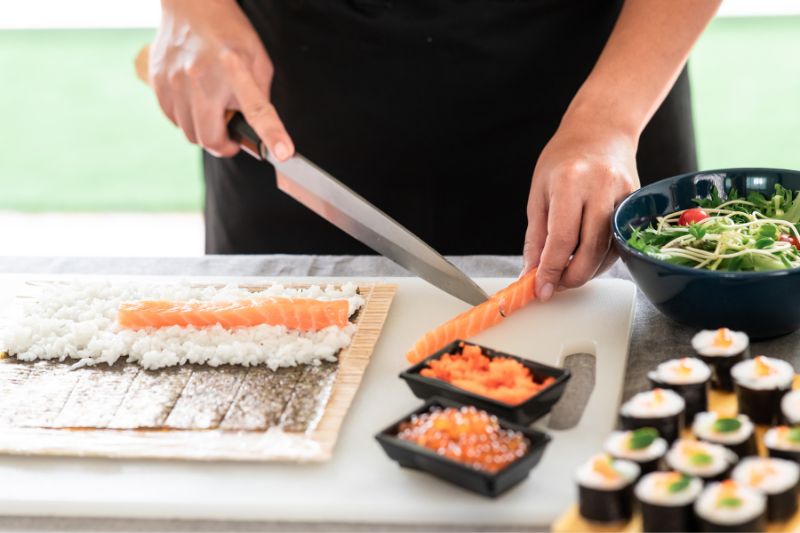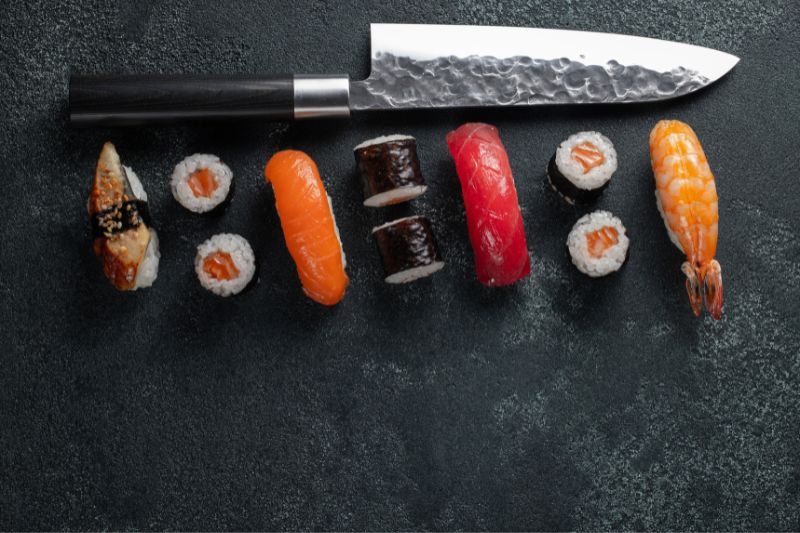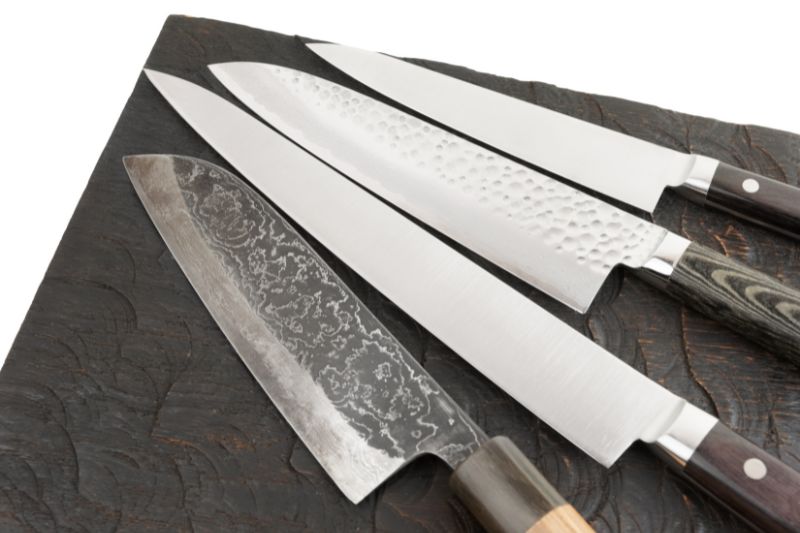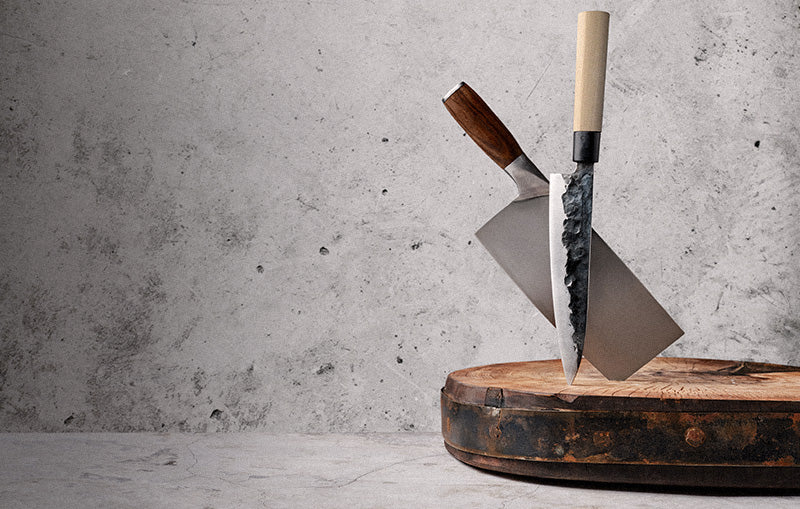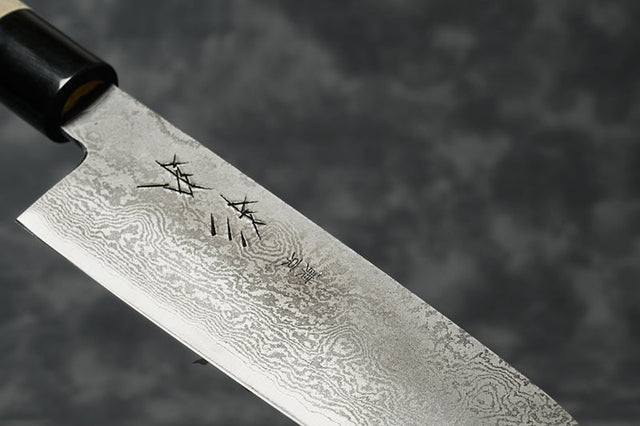Did You Know That a Good Knife Makes Your Food Taste Better?
Retailers make a lot of dubious claims about kitchen knives. But some things that we know for sure are that good, sharp knives make cooking faster, safer, and much more fun. But did you know that they can also enhance the flavor and quality of your food? No, it isn't just marketing talk; a sharp knife really can improve the taste of your dishes!
Minimize Effort, Maximize Flavor
But how can that be so? Well, it begins with something the naked eye can't see. This article will start with a trip back to biology class with a brief refresher on cells. Then, I'll explain how avoiding cell damage will make your food taste amazing and look better (and how it could even be healthier for you). Creating good flavors begins before your food is in the frying pan, so let's start with the basics.
Cells In Food

If you take your mind back to your high-school biology class, you might recall that all living things are made of collections of microscopic cells. These cells produce all sorts of nutrients, vitamins, and enzymes, amongst other good stuff vital for sustaining our lives. When we eat food, our body breaks down these cells and absorbs the healthy naturally occurring biochemicals inside them. These cells are also responsible for the delicious aromas and flavors in food.
Cell Damage
But watch out! Because every time you use a blunt knife to crush through vegetables, you're bursting hundreds of these tiny cells and leaving some of their nutrients (and flavors!) in the juices on the chopping board. It isn't a vast amount, but over the course of your life, that's a lot of yummy goodness that you're missing out on.
Preserving Cells
When a good quality knife cuts through meat and vegetables, it doesn't interact with as many cells, thus limiting the number of them it destroys. That's why a sharp knife has little resistance and smoothly passes through objects. As a result, you can keep the flavors and nutrients off your chopping board and keep them in your fruits and vegetables where they belong, ready for you to eat them.
Maximum Flavor
So, at a cellular level, good knives preserve flavor and nutrients in cells, but there are also a few other ways they make your food extra tasty. There's much more to appetizing food than just packing it with flavor. Sometimes it's about avoiding bad tastes or enhancing other aspects of your dish to add some 'psychological' deliciousness. And, as it turns out, an excellent knife can help you with all these elements.
Less Bitterness
When some fruits and vegetables are cut, they release something called polyphenols. When eaten, these polyphenols act like antioxidants, which help protect the body against free radicals that contribute to cancer and other diseases. But the downside of polyphenols is that they speed up oxidation in vegetables and therefore contribute to bitterness. With a sharp knife, it is thought that you create fewer polyphenols. So, you can still enjoy the health benefits of polyphenols without adding unwanted bitterness to your food. This is especially important for the super-tasters out there.
More Umami
Nutrients are just one of the things you're missing out on when food is sledgehammered with a dull knife. You're also losing out on a ton of umami savory goodness. If you don't know, umami is the fifth flavor after sweet, salty, sour, and bitter. And, as the new kid on the block, it's something that only in-the-know home cooks think about when cooking. When you burst cells in food, you release their oils and amino acids. One amino acid found in some foods is called glutamic acid. It's a significant contributor to umami flavor. So, take your guests to umami heaven – use a good knife to keep as many cells intact as possible!
Preserving Texture
Food texture plays a vital role in how much we enjoy a dish. There's nothing like a silky slice of sashimi salmon or a crispy fresh vegetable. But a blunt knife can ruin all these subtle pleasures. If you've ever wondered why your food feels fluffy, mushy, or just a bit ick compared to a restaurant, this could be why. Top-level chefs use top-level knives to achieve the textures they know will be the most pleasing. So let's save the mashing for potatoes.
Preserving Beauty
In the same vein, if you want your food to have that glorious sheen on the surface, the secret is a sharp knife. You will be shocked at the difference in appearance between a piece of carrot, for example, cut with a blunt knife or sharp knife. The difference is night and day. Cheap, dull knives produce a rough, jagged surface that's uneven and unappealing. A good quality knife will create smooth, shiny-looking pieces that will enhance the beauty of your dish. Before people eat with their mouths, they eat with their eyes. Don't believe me? Check out this scientific study!
Keep Your Herbs Fresh
A blunt knife will cause herbs to wilt and bruise much faster than a sharp knife. This affects not only the flavor of a dish but also its appearance. So, you'll want to use a decent knife if you want a fine sprinkling of herbs to use as a garnish rather than wet clumps.
Additional Benefits
Not only does a good-quality knife improve the taste of your food, but it also comes with many other benefits.
Cut Onions Without Tears
Remember what I said about a sharp knife destroying as few cells as possible? It can also stop onions from hurting your eyes. The reason that onions make you cry in the first place is that when they're cut, the cells break open and mix enzymes with amino acids creating a vapor that irritates your eyes. Using a high-quality knife breaks far fewer cells, making much less of this undesirable chemical cocktail.
Save Money and Have More Fun in the Kitchen
Do you know that great feeling when you drive a nice car? It makes you want to go across the whole country, right? Well, it's the same with a great knife. Cooking won't feel like a chore when your knife makes vegetable prep quick and easy. So, save yourself time and money cooking at home - and enjoy all the health benefits of avoiding preservatives and sugars in takeaway food.
Conclusion
If you want to cook like the best, you need to cut like the best. Keep your food looking good and tasting good and your body healthy with a high-quality knife. Your guests will never be able to guess that your secret ingredient is sharpness!
Get Free Bonus Books
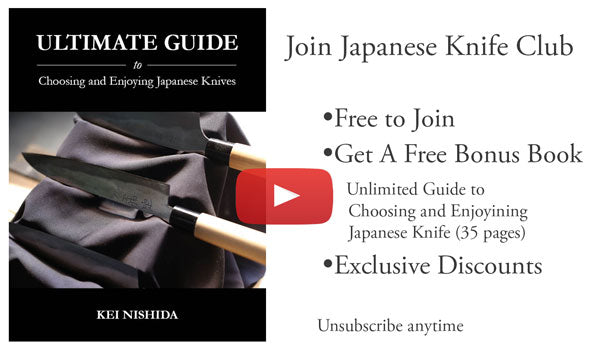
Sign up for free to the Japanese Knife Club to get advice and exclusive articles about how to choose Japanese Knives, and tips and tricks for using Japanese knives.
About the author
Kei Nishida
Author, CEO Dream of Japan
Certification: PMP, BS in Computer Science
Education: Western Washington University
Kei Nishida is a passionate advocate of Japanese craftsmanship, a writer, and the founder and CEO of Japanese Knife Co., Japanese Green Tea Co., and Japanese Coffee Co., all part of Dream of Japan.
His journey began with a mission to introduce the world to the exquisite flavors of Japanese green tea. Through Japanese Green Tea Co., he pioneered the import of premium tea grown in nutrient-rich sugarcane soil, earning multiple Global Tea Champion awards. He then expanded into the world of coffee, launching Japanese Coffee Co., the first company to bring Sumiyaki charcoal-roasted coffee to a global audience.
With a deep appreciation for Japanese artistry and tradition, Kei turned his attention to one of Japan’s most revered crafts: bladesmithing. Through Japanese Knife Co., he made handcrafted katana-style knives, created by a renowned katana maker, available outside Japan for the first time. These exceptional knives embody centuries of samurai sword-making expertise, blending tradition with modern functionality for chefs and collectors alike.
Kei’s journey continues as he uncovers and shares Japan’s hidden treasures—one sip, one blade, and one legacy at a time.


